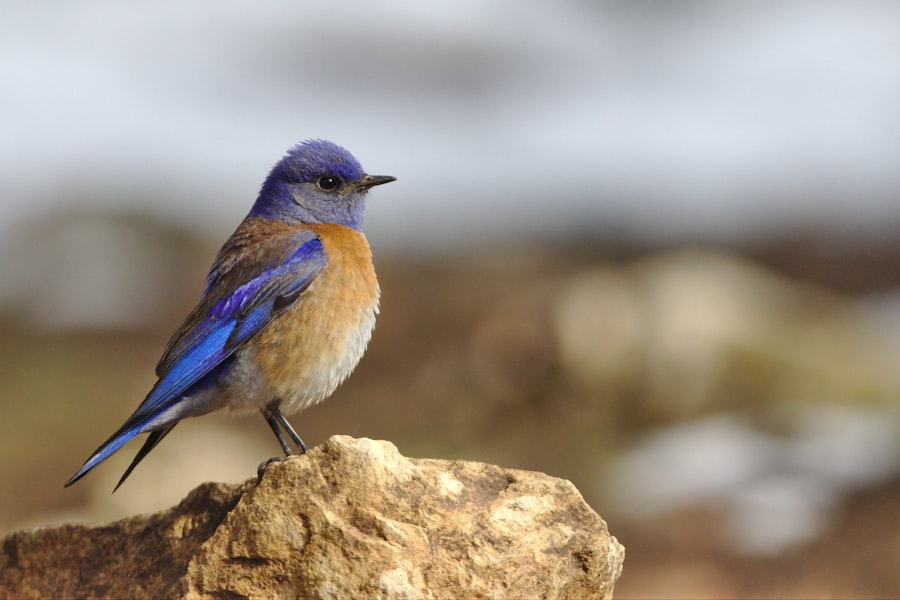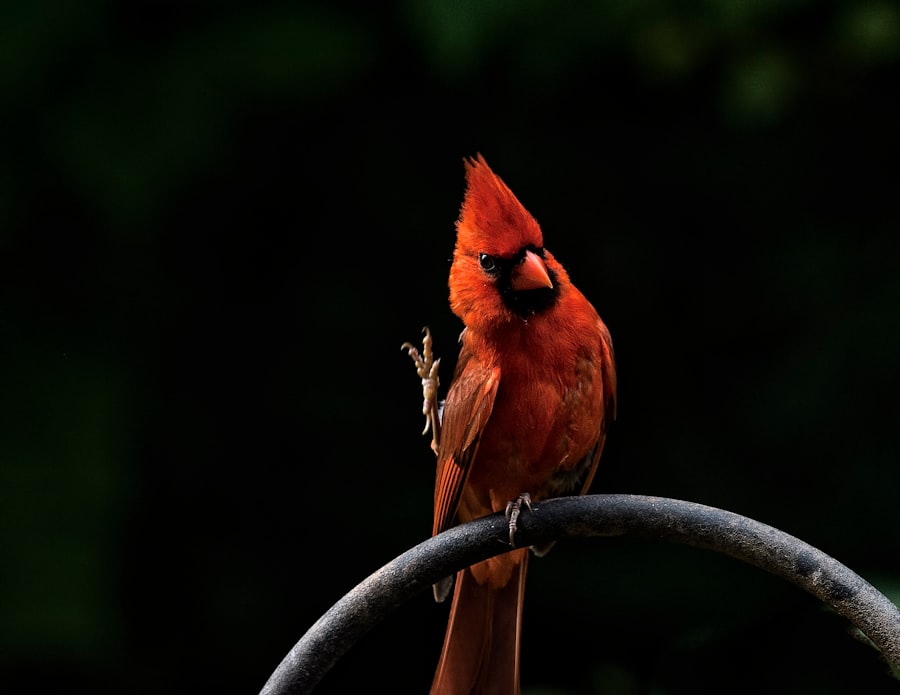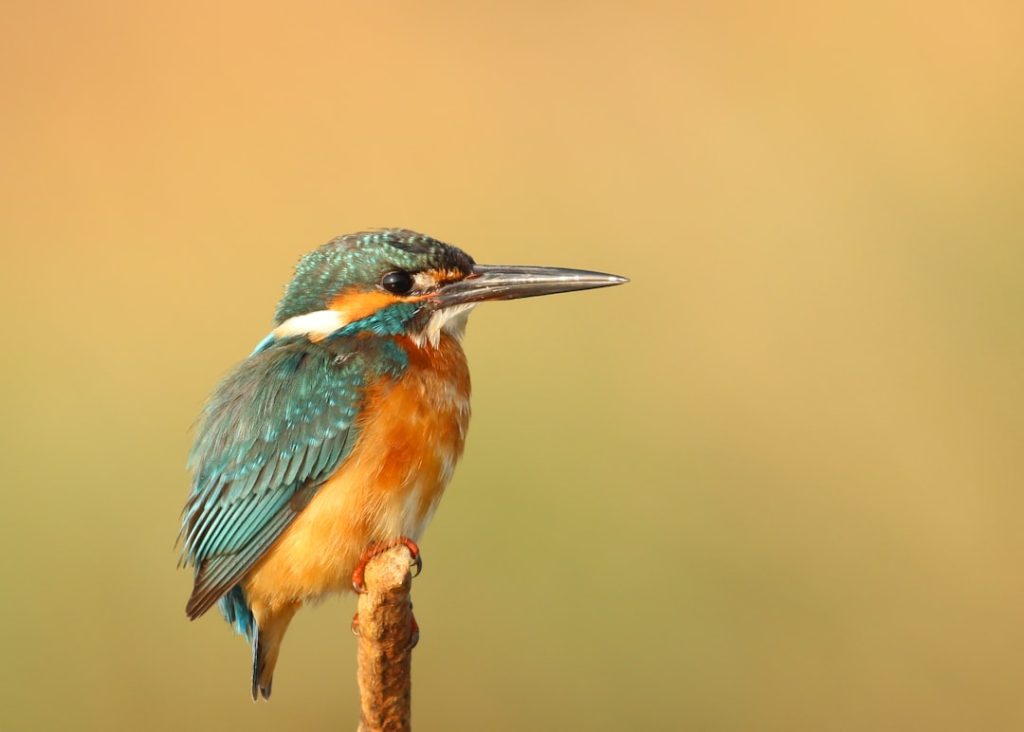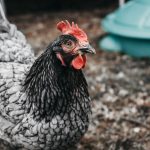Birds of prey, also known as raptors, are carnivorous birds that hunt and feed on other animals. They are characterized by keen eyesight, powerful talons, and hooked beaks. Common birds of prey that threaten chicken coops include hawks, eagles, owls, and falcons.
These skilled hunters can easily capture chickens and other small animals. Chicken owners should be able to identify these birds to implement appropriate protective measures for their flock. Hawks are frequent threats to chickens, known for their sharp talons and swift hunting abilities.
They typically hunt during daylight hours and can be observed circling overhead while searching for prey. Eagles, larger and more powerful than hawks, possess a strong grip capable of easily carrying off chickens. Owls, nocturnal hunters recognized for silent flight and sharp talons, pose a particular danger to roosting chickens at night.
Falcons are known for their exceptional speed and agility in flight, allowing them to swiftly capture chickens with little warning. Understanding the characteristics and behaviors of these birds of prey enables chicken owners to better protect their flocks from potential attacks.
Table of Contents
- 1 Creating a Safe Environment: Securing the Chicken Coop
- 2 Scare Tactics: Using Visual and Auditory Deterrents
- 3 Predator-proofing the Perimeter: Installing Fencing and Netting
- 4 Natural Repellents: Utilizing Plants and Scents to Deter Predators
- 5 Implementing a Predator Control Plan: Using Traps and Repellents
- 6 Seeking Professional Help: Consulting with Wildlife Experts and Pest Control Services
- 7 FAQs
- 7.1 What are birds of prey?
- 7.2 Why do birds of prey target chickens?
- 7.3 What are some effective methods to keep birds of prey away from chickens?
- 7.4 Are there any natural predators of birds of prey that can help keep them away from chickens?
- 7.5 Is it legal to harm or kill birds of prey to protect chickens?
Key Takeaways
- Birds of prey pose a threat to chicken coops and can be identified by their sharp talons and hooked beaks
- Securing the chicken coop with sturdy fencing and covering the top with netting can help prevent bird attacks
- Visual deterrents like scarecrows and reflective tape, as well as auditory deterrents like wind chimes, can help keep birds of prey away
- Installing fencing and netting around the perimeter of the coop can further prevent predators from gaining access
- Utilizing natural repellents such as certain plants and strong scents can help deter predators from approaching the coop
- Implementing a predator control plan may involve using traps and repellents to catch and deter birds of prey
- Seeking professional help from wildlife experts and pest control services can provide additional guidance and support in protecting the chicken coop from predators
Creating a Safe Environment: Securing the Chicken Coop
Regular Maintenance and Repairs
Regular inspections of the coop are necessary to identify any signs of wear or damage, and repairs should be made promptly. This will help prevent predators from finding weaknesses in the coop’s structure.
Providing Adequate Shelter and Cover
In addition to a secure coop, providing adequate shelter and cover for the chickens is essential. This can be achieved by adding roosting bars inside the coop and providing hiding spots such as bushes or shrubs in the outdoor area.
Coop Placement and Deterrents
The placement of the coop within the property is also critical. Ideally, the coop should be located in an open area with good visibility, making it difficult for predators to approach undetected. Installing motion-activated lights or alarms can also deter predators from getting too close to the coop. By taking these measures, chicken owners can significantly reduce the risk of their flock falling victim to birds of prey.
Scare Tactics: Using Visual and Auditory Deterrents

Scare tactics can be an effective way to deter birds of prey from targeting a chicken coop. Visual deterrents such as scarecrows, reflective tape, or predator decoys can help to create a sense of danger for predators and discourage them from approaching the coop. These visual deterrents work by exploiting the natural instincts of birds of prey, making them think that there is a potential threat in the area.
Auditory deterrents can also be effective in scaring off birds of prey. Loud noises such as clapping, shouting, or using a whistle can startle predators and make them think twice about approaching the coop. Some chicken owners even use radios or sound machines to create a constant background noise that can deter predators from getting too close.
Another effective auditory deterrent is using distress calls of other birds or animals that are natural enemies of birds of prey. For example, playing recordings of crow or hawk distress calls can signal to birds of prey that there may be danger in the area, causing them to steer clear of the coop. By using a combination of visual and auditory deterrents, chicken owners can create an environment that is unappealing to birds of prey, reducing the likelihood of an attack on their flock.
Predator-proofing the Perimeter: Installing Fencing and Netting
Installing fencing and netting around the perimeter of the property is an effective way to predator-proof the area and protect the chicken coop from birds of prey. A sturdy fence that is at least 6 feet tall can help to keep out larger predators such as hawks and eagles. It’s important to bury the bottom of the fence underground or use an apron of wire mesh to prevent predators from digging underneath.
In addition to traditional fencing, some chicken owners also use netting or wire mesh to cover the top of the chicken run. This can help to prevent birds of prey from swooping down and grabbing chickens from above. It’s important to use strong and durable materials that are resistant to tearing or puncturing.
Another option for predator-proofing the perimeter is using electric fencing. This type of fencing delivers a mild electric shock to predators that come into contact with it, effectively deterring them from attempting to breach the perimeter. Electric fencing can be a highly effective deterrent for birds of prey as well as other predators such as foxes or raccoons.
By installing fencing and netting around the perimeter of the property, chicken owners can create a physical barrier that helps to keep their flock safe from birds of prey. It’s important to regularly inspect and maintain the fencing to ensure that it remains secure and effective in deterring predators.
Natural Repellents: Utilizing Plants and Scents to Deter Predators
Natural repellents can be an effective way to deter birds of prey from targeting a chicken coop. Some plants have strong scents that are unappealing to predators, making them less likely to approach the area. For example, planting aromatic herbs such as lavender, rosemary, or mint around the perimeter of the property can help to mask the scent of chickens and deter predators.
In addition to planting repellent herbs, some chicken owners also use natural scents such as citrus or garlic to create a barrier around the coop. Spraying a mixture of water and citrus essential oils or hanging garlic cloves near the coop can help to repel birds of prey with their strong odors. Another natural repellent that can be effective against birds of prey is predator urine.
Some companies sell predator urine in liquid form, which can be sprayed around the perimeter of the property to create a sense of danger for predators. The scent of predator urine can signal to birds of prey that there may be a larger predator in the area, causing them to avoid the area altogether. By utilizing natural repellents such as plants and scents, chicken owners can create a protective barrier around their coop that deters birds of prey from approaching.
These natural methods are safe for both chickens and the environment, making them a popular choice for many chicken owners looking to protect their flock.
Implementing a Predator Control Plan: Using Traps and Repellents

Trapping and Relocation
One effective method of predator control is using live traps to capture and remove predators from the area. These traps can be baited with enticing food such as meat scraps or eggs, allowing predators to be safely captured and relocated away from the property.
Repellents and Deterrents
Another option for predator control is using repellents that make the area unappealing to birds of prey. Commercial repellents containing natural ingredients like capsaicin or garlic can be used to create a deterrent barrier around the coop. These repellents can be sprayed around the perimeter of the property or applied directly to surfaces where predators may land or roost.
Non-Lethal Deterrents and Ongoing Monitoring
Some chicken owners also employ non-lethal deterrents such as water sprayers or noise-making devices to scare off predators when they approach the coop. Motion-activated sprinklers or alarms can startle birds of prey and make them think twice about attempting an attack on the flock. It’s essential to regularly monitor and adjust the predator control plan based on any changes in predator behavior or activity in the area, ensuring the continued safety of the chicken coop.
Seeking Professional Help: Consulting with Wildlife Experts and Pest Control Services
In some cases, dealing with birds of prey may require professional assistance from wildlife experts or pest control services. These professionals have experience in dealing with predator control and can provide valuable insight and guidance on how to protect a chicken coop from birds of prey. Wildlife experts can offer advice on habitat modification techniques that make the area less appealing to birds of prey, as well as provide recommendations for non-lethal deterrents that are safe for both chickens and predators.
They may also be able to assist with capturing and relocating problem predators that pose a threat to the flock. Pest control services can also provide assistance in dealing with birds of prey by offering specialized trapping and removal services. They may have access to more advanced trapping methods or repellents that are not readily available to individual chicken owners.
By seeking professional help from wildlife experts and pest control services, chicken owners can gain access to specialized knowledge and resources that can help them effectively protect their flock from birds of prey. These professionals can work with chicken owners to develop a comprehensive predator control plan tailored to their specific needs and circumstances. In conclusion, protecting a chicken coop from birds of prey requires a multi-faceted approach that includes understanding the threat, securing the environment, using scare tactics, predator-proofing the perimeter, utilizing natural repellents, implementing a predator control plan, and seeking professional help when needed.
By taking proactive measures to deter predators and create a safe environment for their flock, chicken owners can significantly reduce the risk of their chickens falling victim to birds of prey. With careful planning and regular maintenance, it is possible to coexist peacefully with birds of prey while keeping chickens safe and secure.
If you’re looking for ways to keep birds of prey away from your chickens, you may also be interested in learning how to convert a shed into a chicken coop. This article from Poultry Wizard provides helpful tips and guidance on transforming an existing structure into a safe and secure home for your feathered friends. Check it out here.
FAQs
What are birds of prey?
Birds of prey, also known as raptors, are carnivorous birds that hunt and feed on other animals. They have keen eyesight, sharp talons, and a hooked beak, which they use to catch and kill their prey.
Why do birds of prey target chickens?
Birds of prey target chickens because they are easy prey. Chickens are often kept in open areas, making them vulnerable to aerial attacks from birds of prey. Additionally, chickens are relatively large and can provide a substantial meal for a bird of prey.
What are some effective methods to keep birds of prey away from chickens?
Some effective methods to keep birds of prey away from chickens include using visual deterrents such as reflective tape or scarecrows, installing physical barriers like netting or wire mesh over the chicken coop, and providing hiding spots for the chickens to take cover.
Are there any natural predators of birds of prey that can help keep them away from chickens?
Yes, larger birds of prey such as eagles and owls are natural predators of smaller raptors and can help keep them away from chickens. Encouraging the presence of these natural predators in the area can help deter smaller birds of prey from targeting chickens.
Is it legal to harm or kill birds of prey to protect chickens?
No, it is illegal to harm or kill birds of prey as they are protected under various wildlife conservation laws. Instead, it is recommended to use non-lethal methods to deter birds of prey from targeting chickens. If the problem persists, it is advisable to seek assistance from wildlife authorities or conservation organizations.
Meet Walter, the feathered-friend fanatic of Florida! Nestled in the sunshine state, Walter struts through life with his feathered companions, clucking his way to happiness. With a coop that’s fancier than a five-star hotel, he’s the Don Juan of the chicken world. When he’s not teaching his hens to do the cha-cha, you’ll find him in a heated debate with his prized rooster, Sir Clucks-a-Lot. Walter’s poultry passion is no yolk; he’s the sunny-side-up guy you never knew you needed in your flock of friends!







